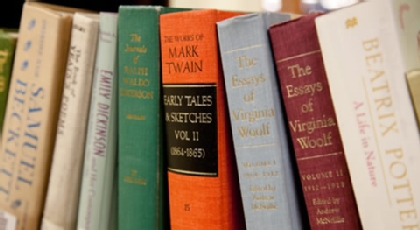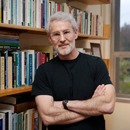Page 19 • (2,806 results in 0.027 seconds)
-
describe what they did to learn (how they learned) and what they learned. Personal reflections. Usually gathered after a learning activity or whole course, these can be generated in writing, class discussions, online exchanges, learning portfolios, or even in SGIDs (Small Group Instructional Diagnosis). Learning portfolios Performance in problem-based learning CaringIn this kind of learning, you are trying to either get students to care about something new or in a new way, or to learn how to reflect on
-
with your struggles, or have overcome them, then it’s okay. Be specific. Instead of saying, “I follow through on things,” give specific examples of how you followed through. Describethe results of your action. Instead of writing “Study abroad will help me grow as a person,” think of specific ways in which you expect to grow. Show, don’t tell. Find details to illustrate your personal narrative. Detail is good! Ask ‘why’ 5 times. If you wrote “I have always wanted to…”, ask yourself ‘why’. If your
-
response should be an illustration of your writerly intelligence and your critical abilities. All pages should be double-spaced, using 10 or 12 point font, with the pages numbered, and your name at the top right. Upload your writing sample via the application portal. Personal statement This two-page statement should describe your background in writing, and your goals and reasons for wanting to enroll in the program. All pages should be double-spaced, using 10 or 12 point font, with the pages numbered
-
-oriented, contextually sensitive MFT Professionals who address the diverse needs and clinical concerns of individuals, couples, families, and communities. Master of Fine Arts in Creative Writing (MFA) The Master of Fine Arts in Creative Writing is an innovative three-year, four-residency program in poetry, fiction, and creative nonfiction. Celebrating more than a decade of accomplishment. The Rainier Writing Workshop has been helping writers to answer those questions, and to generate new, even deeper
-

is defined as the manuscript, art, or piece of writing material on which the original writing has been effaced to make room for later writing but of which traces remain. “This show is for us, this is our show. The people who show up, are showing up for us. We are taking ownership of graduating and everything we have learned at PLU, and continue to learn in our future endeavors,” Monica Payne ‘19, submitting artist and BFA in graphic design concentration. A total of 19 seniors will be exhibiting
-
-time for 10 weeks with Professor Wendy Call, doing preliminary research for a book proposal she is developing. The book will be a creative writing guide on “sense of place” which paired well with the personal essay project that was also a part of my research grant: an autobiographical, research-based, nonfiction essay collection about my lived experience in various urban nature sites in Tacoma, including the old PLU golf course.Click Here to Read Hilary Vo's Presentation
-

outside experience was at the American Academy in Rome, where she studied her writing alongside composers, artists and other writers. “It was a really rich environment,” she said. “If it hadn’t been for this program I wouldn’t have had this opportunity.” Students come into the MFA program with specific needs, and there is an independent focus on the specific needs of each student. Rubin said students are assigned a personal mentor, who helps them develop their craft throughout the entirety of the
-

adoption. Second, since moving back to the U.S. a few years ago, I’ve noticed a more widespread willingness to step into conversations regarding race and ethnicity. It seemed like my book could be a useful tool for unpacking conversations regarding identities, especially in sociology departments. A third reason for writing this book now was for personal reasons. I’ve loved writing since I was in middle school, but also, I hope to help with higher education costs for some cousins in Colombia through any
-
from PLU alumni industry professionals to gain first hand insight into the health services field. Additionally, hear how their graduate education played a role in their career development. There will also be a time at the end to network with the panelists and other attendees. Practical Workshops - How to Start?Learn about tools and strategies for applying to graduate school and how to improve your resume, personal statements, and recommendations. Speakers include members from PLU’s Alumni & Student
-

Thomas Campbell Professor of English Email: campbetj@plu.edu Professional Education Ph.D., University of Oregon, 1981 M.A., Portland State University, 1976 B.S., University of Oregon, 1968 Areas of Emphasis or Expertise British Literature Bloomsbury Group and Literary Modernism Personal Writing Romanticism AIDS Literature Accolades Faculty Excellence Award for Teaching, 2003-04 Teaching Excellence Award, PLU Center for Teaching and Learning, 2001
Contact InformationArea of Emphasis/Expertise
Do you have any feedback for us? If so, feel free to use our Feedback Form.


